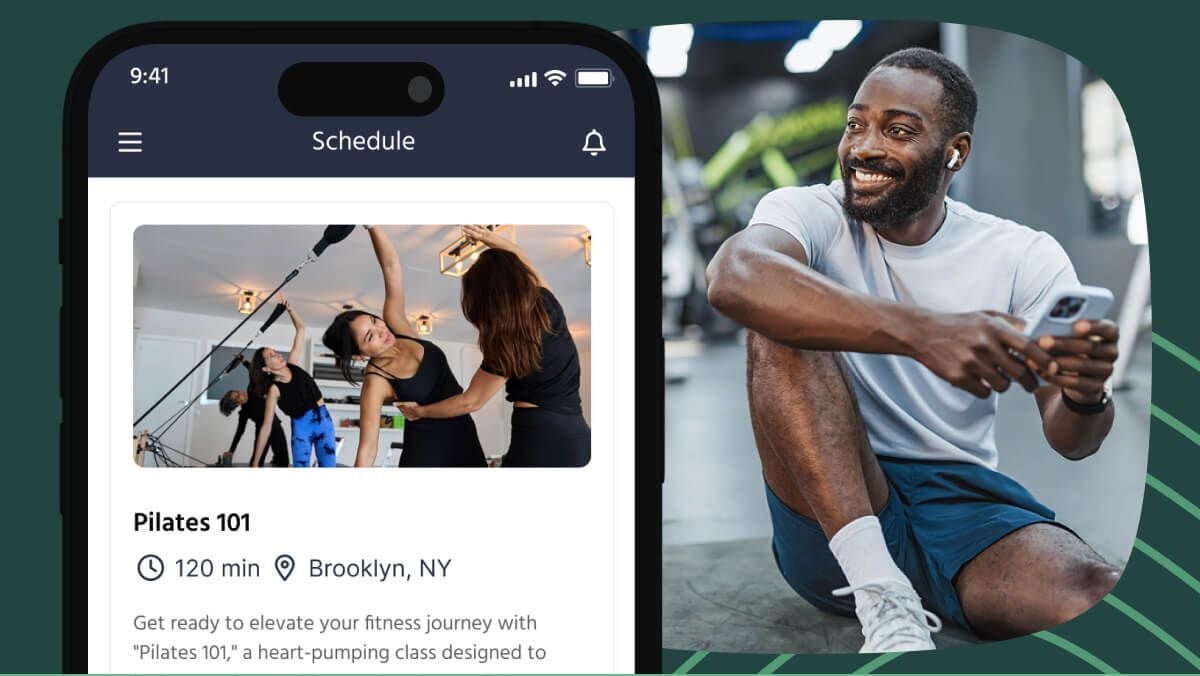Have you ever considered channeling your passion for health and wellness into a career? As a nutrition coach, you can positively influence people's health by guiding them through the maze of nutritional choices.
This role isn't just about the science of food; it's deeply rooted in connecting with individuals.
Part detective, educator, and cheerleader, you help clients discover the path to better health through personalized dietary guidance. In today's world, where health consciousness is at an all-time high, the role of a nutrition coach is crucial.
Whether helping someone manage a chronic condition with diet, aiding athletes in enhancing their performance, or guiding weight loss journeys, your impact as a nutrition coach can bring life-changing improvements in your client's health.
Let's explore how you can transform your nutritional knowledge into a rewarding career as a nutrition coach.
What is a nutrition coach?

A nutrition coach is a professional dedicated to helping individuals achieve their health and wellness goals through tailored nutrition advice. They play a multifaceted role by educating clients about healthy eating and crafting personalized nutrition plans that fit into each individual's unique lifestyle.
Imagine being someone's trusted advisor, helping them cut through the noise of fad diets and quick fixes to establish lasting, healthy eating habits.
According to Nicole Golden, founder of FWF Wellness, excelling as a nutrition coach requires a passion for nutrition, behavior coaching, and helping others, in addition to the right blend of interests and strengths.
You might wonder how this role differs from that of a dietitian or nutritionist. Dietitians and nutritionists typically have formal education in nutrition science, often dealing with clinical dietary needs and specific medical conditions.
They're the experts you turn to for medical and nutritional therapy. On the other hand, as a nutrition coach, your focus is more on the practical side of everyday eating and lifestyle choices.
You're the one who helps clients implement the advice of nutritionists and dietitians into their daily lives, making it manageable and sustainable.
Your impact as a nutrition coach goes beyond meal plans; it empowers clients to make informed food choices and transform their relationship with food.
While a dietitian or nutritionist might provide the 'what' of eating, you provide the 'how.'
You become a crucial part of your client's support system, guiding them to better health. Isn't it a rewarding thought to be someone's catalyst for a healthier, happier life?
6 steps to becoming a nutrition coach

Becoming a nutrition coach involves several key steps, each paving the way to a successful career guiding others to better health.
From gaining foundational knowledge to building a solid client base, each step is crucial in shaping you into a skilled and effective nutrition coach.
Imagine guiding others towards healthier lives — isn't that a fulfilling thought? Let's dive into the essential steps to turn this vision into reality.
1. Understanding the basics of nutrition
A nutrition coach's journey starts with a thorough grasp of nutrition science. This foundation is critical for helping others effectively.
It's more than knowing which foods are healthy; it's about understanding their effects on the body.
Are you prepared to explore the depth of nutritional science and its impact on health?
2. Educational requirements
Are you considering formal education in nutrition? A degree or specialized courses in this field can significantly boost your expertise. Envision yourself armed with comprehensive knowledge, ready to guide your future clients.
This educational journey shapes your understanding and enhances your credibility as a nutrition coach.
According to NASM, a formal education in nutrition can enhance a coach's understanding and credibility and provide a strong foundation for establishing a healthy coaching practice.
3. Certifications for nutrition coaches
Selecting the appropriate certification is crucial. Reflect on your career goals and seek a program that aligns with your ambitions.
The right certification validates your expertise and informs you about current nutrition coaching practices.
Choosing a suitable program is a significant step in your professional journey.
Further reading: Certification for personal trainers | How to become a personal trainer
4. Gaining practical experience
Practical experience is invaluable, going beyond what theoretical knowledge can offer.
Look for internships or volunteer roles that allow you to apply your learning in real-world settings.
This hands-on experience equips you with the skills to address the diverse needs of your clients.
5. Building a client base
Think about how to attract your initial clients. Your marketing approach should highlight what makes your services unique.
Effective marketing can help your nutrition coaching stand out, attracting those needing guidance.
Building a solid client base is key to establishing your presence in the field.
Insider insight
“Nutrition coaching certifications can help health and fitness professionals, as well as individuals looking to become nutrition coaches, gain the skills and knowledge they need to provide the best possible service — which in turn means a thriving business for you.”
Tim Green | COO at TeamUp (a DaySmart Company)

6. Continued education and professional development
Keeping up with the latest developments in nutrition is vital. Commit to continuous learning and skill enhancement to stay ahead in the field. This ongoing education benefits your clients and contributes to your growth as a professional.
Stepping into this career is more than a job change; it's a pledge to enhance lives through nutritional knowledge and support. With each step, you're moving closer to being influential in nutrition coaching.
Certifications for nutrition coaches
Choosing the right certification is crucial to becoming a nutrition coach. These programs enhance your expertise and credibility.
Here's a breakdown of some key certification programs and their specific benefits:
Precision Nutrition Certification
This program is known for its comprehensive coverage of nutrition science and coaching techniques, making it perfect for practical application.
It also offers a Level 2 Certification for advanced topics like metabolism and gut health, ideal for deepening your coaching skills.
NASM Nutrition Certification
The NCCA accredits this certification and includes a business accelerator program, guiding you on how to start and grow a successful nutrition coaching business.
ISSA Certified Nutritionist
Focused on sports nutrition, the ISSA program covers macronutrients, supplements, and meal planning for athletes, catering to those specializing in sports nutrition.
According to ISSA, taking a nutrition certification program can deepen your knowledge of nutrition. This can help when working with clients. You're able to provide guidance based on proven nutrition science.
NBHWC Certification
Ideal for aspiring health and wellness coaches, this program includes motivational interviewing, behavior change, and coaching ethics, equipping you to guide clients effectively.
AFPA Holistic Nutritionist Certification
Perfect for a holistic approach, this certification covers whole foods, plant-based diets, and natural remedies, broadening your perspective on health and nutrition.
Institute for Integrative Nutrition (IIN)
IIN's comprehensive Health Coach Training Program addresses nutrition, stress management, and wellness. It also offers a business course for building a successful health coaching practice.
ACE Fitness Nutrition Specialist
Recognized by the Academy of Nutrition and Dietetics, this NCCA-accredited certification includes a study coach program, offering personalized support throughout your certification journey.
Each of these certifications brings unique advantages to your nutrition coaching career, depending on your interests and goals. Consider which aligns best with your vision to enhance your impact as a nutrition coach.
Frequently Asked Questions
What are the key skills needed to be a successful nutrition coach?
A successful nutrition coach needs strong communication skills, empathy, and a deep understanding of nutrition science. They should also be skilled in motivating clients and creating personalized nutrition plans.
Can I become a nutrition coach without a background in health or science?
Yes, you can become a nutrition coach without a prior health or science background, as many certification programs provide the necessary foundational knowledge.
How long does it typically take to become a certified nutrition coach?
The time to become a certified nutrition coach varies, typically ranging from a few months to a year, depending on the program's intensity and your commitment.
What are the career prospects for a nutrition coach?
Career prospects for a nutrition coach include working in wellness centers, private practice, fitness facilities, and online coaching platforms, with opportunities for growth in diverse health and wellness settings.
How can a nutrition coach stay updated with the latest nutrition research and trends?
A nutrition coach can stay updated with the latest research and trends by attending workshops, enrolling in continuing education courses, and subscribing to relevant health and nutrition publications.









